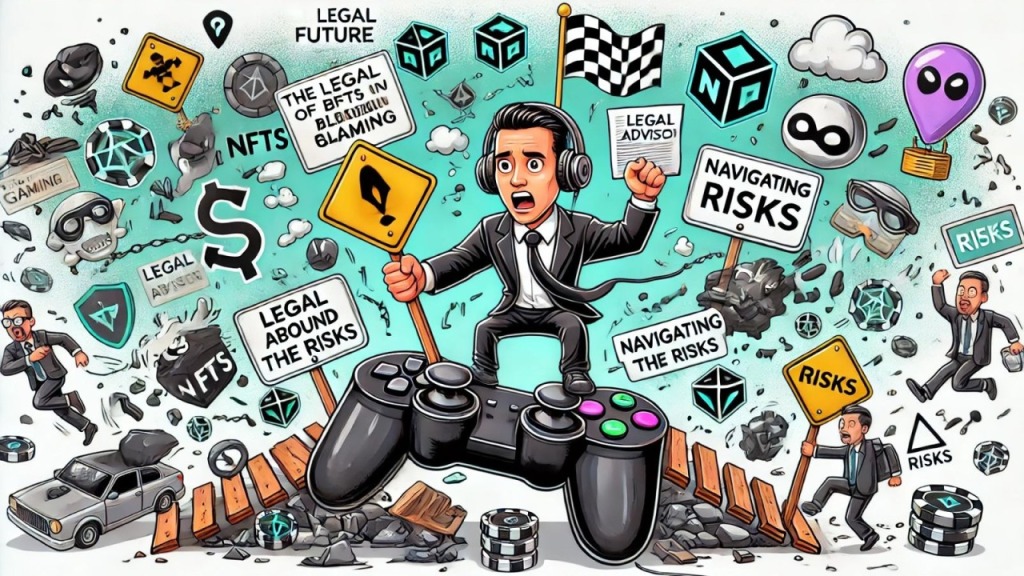
Blockchain gaming and NFTs are transforming digital entertainment. But they also introduce complex legal and regulatory challenges that can’t be ignored.
Intellectual property disputes, smart contract errors, and shifting global regulations create risks for developers and players alike. These issues impact the security of digital assets and compliance with evolving laws.
How do you navigate this tricky landscape? This article explores common legal risks and offers practical steps for safer participation. Whether you’re a developer or gamer, understanding these challenges is essential. Stick around to learn more.

Understanding Legal Ownership in NFTs and Digital Assets
Legal ownership of NFTs and digital assets is often misunderstood. While purchasing an NFT grants ownership of a unique token on the blockchain, it doesn’t always include rights to the underlying content, such as artwork or in-game items. This gray area creates confusion, particularly when resale or reproduction is involved.
To avoid disputes and ensure clear legal ownership of NFTs, developers must precisely define terms in smart contracts and licensing agreements. For NFT investors, consulting a trusted cryptocurrency lawyer can provide crucial guidance in navigating complex regulations, clarifying ownership rights, and safeguarding digital assets against evolving legal risks.
The Role of Smart Contracts in Blockchain Gaming Disputes
Smart contracts automate transactions in blockchain gaming, but errors in their code can lead to costly disputes. Issues such as unclear terms, coding bugs, or vulnerabilities can lead to financial losses or legal conflicts between developers and players.
Disputes often arise when smart contracts fail to deliver promised rewards, transfer ownership correctly, or handle royalty payments as intended. Addressing these challenges requires careful drafting, auditing, and testing of smart contracts before deployment. Developers can also mitigate risks by using trusted third-party platforms. Players should verify terms and functionality to avoid misunderstandings or financial losses during transactions.
Global Compliance Challenges for Blockchain Gaming Platforms
Blockchain tech is good for all sorts of things, including improving privacy. However, gaming platforms that use it face complex compliance challenges due to varying laws across jurisdictions. Regulations surrounding cryptocurrencies, NFTs, and online gaming differ widely, with some countries imposing strict rules or outright bans.
Taxation, anti-money laundering (AML) requirements, and consumer protection laws add further layers of complexity to the process. Non-compliance can result in penalties or restricted market access.
To navigate this landscape, platforms must stay informed about regional laws and regularly update their practices. Partnering with legal experts ensures adherence to regulations while fostering trust among users. Clear terms of service and transparency also help mitigate legal and reputational risks.
Protecting Intellectual Property in the Blockchain Space
Intellectual property (IP) theft is a growing concern in the blockchain gaming and NFT sectors. Unauthorized reproduction of artwork, game assets, or other digital content can lead to disputes and financial losses for creators.
Developers should utilise copyright protections and trademark registrations to safeguard their intellectual property. Embedding clear usage terms in smart contracts and NFT metadata reinforces ownership rights, ensuring transparency and accountability.
Players can also avoid legal risks by ensuring the NFTs they purchase are from legitimate sources. In cases of IP infringement, working with a lawyer can help enforce rights and navigate disputes effectively within this evolving digital landscape.
Final Thoughts
Blockchain gaming and NFTs present exciting opportunities but also pose significant legal challenges. Addressing intellectual property concerns, smart contract issues, and compliance risks is critical for developers and players.
Taking proactive steps, like consulting legal experts and staying informed about regulations, ensures safer participation in this rapidly evolving digital ecosystem.




















